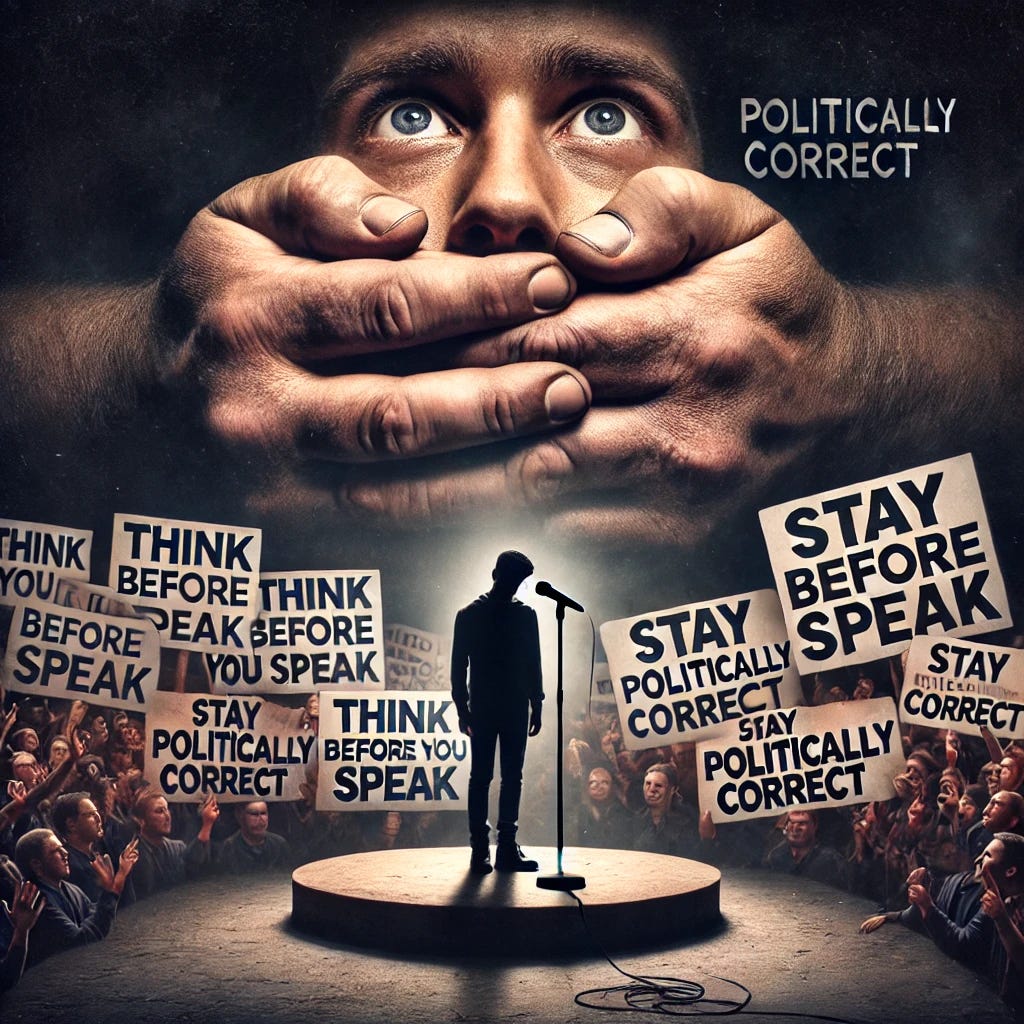Respect and Empathy: A New Approach to replace Political Correctness
Say no to PC!
In an era of heightened social awareness, the concept of political correctness has sparked intense debate. While some see it as a necessary evolution toward inclusivity, others argue that it suppresses free expression. But what if there was an alternative—one that prioritizes respect and empathy over strict adherence to shifting social norms?
Reframing the Discussion
Instead of viewing political correctness as an obligation, it should be seen as a choice rooted in valuing others. True respect empowers individuals, ensuring that language fosters inclusion rather than avoidance of offense. For example, rather than mandating the use of certain terms, consider the case of schools implementing cultural sensitivity training. In some educational institutions, teachers encourage students to understand the historical and cultural weight of words rather than simply banning certain phrases. This method allows students to make informed, thoughtful choices about their language, leading to deeper understanding rather than mere compliance.
The Difference Between Intent and Compliance
A key issue with political correctness is that it can feel performative. A culture of respect, however, focuses on genuine care for others' perspectives. When people choose to use inclusive language because they understand its impact, it builds stronger connections. For instance, a company that genuinely embraces diversity by fostering employee-led cultural education initiatives creates a more inclusive atmosphere than one that merely enforces strict language policies. One real-life example is Google’s approach to inclusion—beyond corporate policies, they have introduced employee-led initiatives that celebrate diverse backgrounds and encourage open discussion, leading to more organic and meaningful change within their workforce.
Why Empathy Matters
Words have emotional and social weight. Studies show that people are more receptive to meaningful dialogue when conversations are approached with understanding rather than enforcement. The goal should be to promote authentic conversations that acknowledge real human experiences.
A great example is the transformation in public discourse around mental health. The term “crazy” was once casually used in conversations but has since been largely replaced with more considerate alternatives such as “mental health challenges” or “neurodivergent experiences.” This shift did not happen overnight due to strict language policing, but rather through a combination of mental health advocacy, public education campaigns, and personal stories shared by those affected.
Similarly, in the LGBTQ+ community, terms that were once considered offensive have been replaced with affirming language through ongoing advocacy and storytelling. The key to these changes was not just strict rules but real conversations and efforts to foster deeper empathy and understanding.
Practical Solutions for a More Respectful Society
Free speech is a fundamental right, but it should be exercised responsibly to avoid unnecessary harm. Encouraging open discussions that embrace nuance and welcome differing perspectives fosters progress rather than division. For example, universities such as the University of Chicago have adopted policies that protect open discourse while simultaneously fostering environments where students feel heard and respected. These policies acknowledge that free speech should not be stifled, but also recognize the importance of fostering inclusive discussions that do not silence marginalized voices.
Language evolves, and people need room to learn without fear of being ostracized. Rather than punishing someone for using an outdated term, constructive feedback can be more effective in fostering positive change. Consider the case of Starbucks’ racial bias training program. Following an incident in which two Black men were wrongfully arrested at a Starbucks store, the company implemented a nationwide training program designed to educate employees about implicit bias. Rather than simply mandating policy changes, they sought to create an ongoing dialogue that helped employees understand and address biases in a meaningful way.
Diversity of thought should be celebrated, provided discussions remain respectful. Rigid language enforcement can alienate rather than educate. Consider the difference between an organization that imposes strict speech codes versus one that holds workshops to explain why certain language choices matter. One example is Airbnb’s anti-discrimination policies, which go beyond setting rules and instead actively educate hosts on inclusive language and practices, ensuring that inclusion is embedded in the culture rather than just being a checkbox requirement.
While inclusive language is important, real change comes from addressing broader societal inequalities. Actions should complement words in tackling discrimination. For example, companies that ensure fair hiring practices and equal pay do far more for social progress than those that simply release statements on politically correct language.
One such example is Ben & Jerry’s, a company known not only for its commitment to social justice but also for implementing real-world policies that promote inclusivity. Rather than just making statements about racial equality, they actively invest in minority-owned businesses, advocate for social justice reform, and educate their customers about systemic racism.
Final Thoughts
The shift from political correctness to a culture of respect and empathy can bridge divides and encourage meaningful dialogue. Instead of policing language, we should focus on building understanding and authentic relationships.
By doing so, we create an environment where everyone feels heard, valued, and included. Real change happens not through mandates but through ongoing conversations, education, and genuine efforts to uplift diverse voices.
What are your thoughts? How can we better balance free expression with mutual respect? Join the discussion below!




